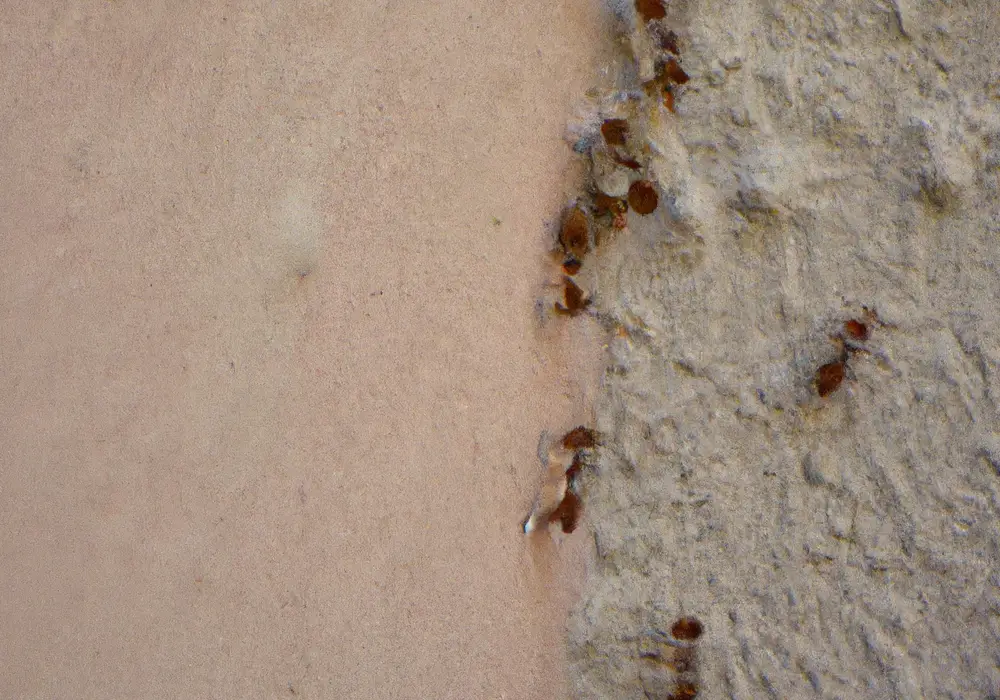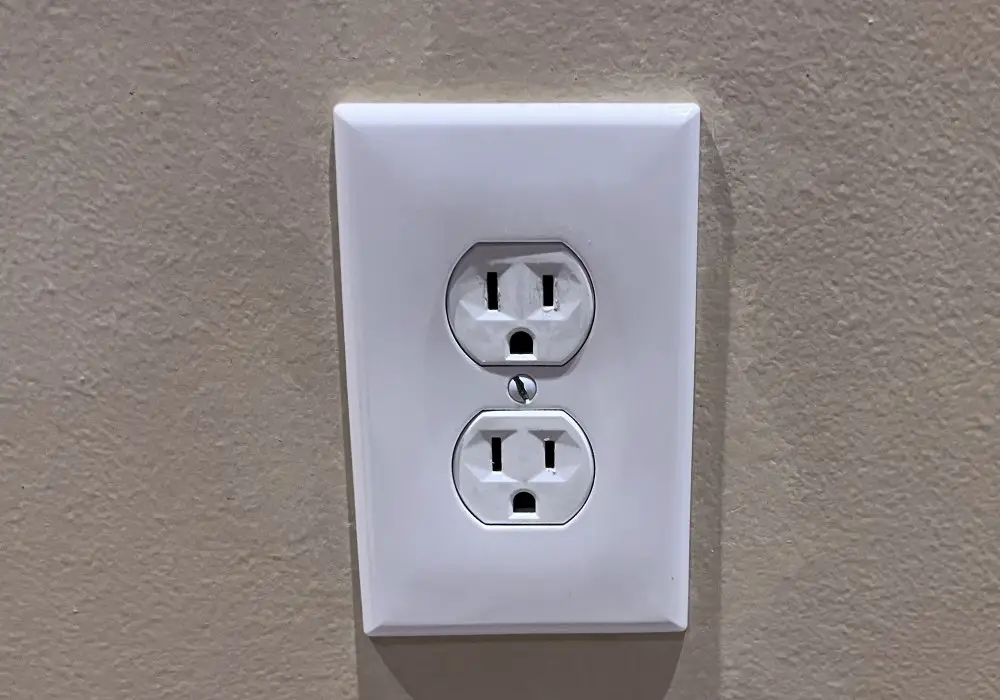It can be hard to keep ants and other pests out of every nook and cranny, but things can become dire when they make their way into sensitive electrical equipment like circuit breakers or electrical sockets.
Not only can pests in these places be hard to locate and kill but doing so can cause damage to electrical wires and electrical switch boxes in our walls.
Key Points:
- Ants are attracted to electrical outlets, and they can cause damage to sensitive equipment and wires.
- The best way to remove ants from outlets is with ant bait strips, which won’t cause damage to wires or power switches.
- Signs of the presence of ants in outlets include trails and discoloration, cracks, or new holes near wall outlets.
Unfortunately, many common types of ants seen attracted to electric outlets and find their way inside over and over again despite our best efforts to keep them out.
Is there a reason that ants seek out electric wires and choose our electrical outlets, or is it just an inconvenient coincidence? Are there some ant species that prefer nesting in electrical outlets and chewing on electrical wires? Find out all of this and more in the article below.
What is the Best Way to Remove Ants from Outlets?
According to pest control specialists, it is only a matter of time before ants find their way into electrical installations, especially around kitchen sinks and electrical appliances for food.
This is more common in older homes and apartments where a professional ant exterminator has set up preventative measures. If you do discover ant trails near outlets or an entire colony in outlet receptacles, ant bait is the best way to remove these pests.
Ant bait has two main advantages over other pest eradication methods and can help prevent severe damage to electrical installations in and around your home.
Ant bait will work equally well on almost any species of ants and can draw them out of the outlets where they can be killed by the poison in the ant bait stations. With ant bait strips, there is no need to risk getting liquid in any electronic outlet when spraying the outlet cover, and will prevent damage to power switches and light switches in the walls.
How Do Ants Damage Wires and Electrical Equipment?
Ants chew to build nests and find food, and electrical wires with their heat, sound, and vibration attract ants and encourage chomping. damage from ants to electric equipment can range from slight usability issues in devices or hidden damage and long-term damage to circuit boards requiring costly repairs or replacement.
Ants can also create contact and shorts while they build their nests or just travel and invite moisture into places that are meant to stay dry and contaminant free.
The most notorious ants commonly found in wall sockets are crazy ant infestations. These tiny long-limbed insects will lead to broken wires and, when electrocuted, release a pheromone signal that calls to other colony mates.
These other ants follow the pheromone trail and also bite the wire, adding to the pile of electrocuted ant corpses. With so many roasted ants available, it is likely to develop into a larger insect infestation as cockroaches, and bigger pests move in to feed.
How Do I Know Ants Are in My Outlets?

Until ants start to cause electrical damage in equipment boxes, wall sockets, and light sockets, they can be hard to identify. It is advisable to use different natural remedies like peppermint oil and other home-safe insecticide products to keep ants from ever entering outlets, but if it’s too late, there are signs to be aware of.
Ants will come out for food, and you should see a trail of ants at some point sd the difficult infestation grows. Ant trails are a good sign, and if you follow them, you can easily discover the entry holes and set commercial traps.
You can also look for signs of discoloration, growing cracks, and new holes appearing around wall outlets. As the colony expands, some ant types will build more places for ants entry into the colony and lead to electrical and possible structural damage if left unchecked.
If you have any suspicion that ants are in your outlets, you should set traps or take action immediately.
Reasons Bugs Are Attracted to Electrical Outlets
Bugs like to find warm places that are near a food source. Electricity running through wires in our home produces heat, and unsealed electric installations can make the perfect home or hunting spot depending on the bug.
Ants like the warmth and will chew on the wires to try and burrow deeper, resulting in short circuits and pest electrocution. Predators can easily feed on these corpses, and many outlets give easy access to kitchen and bathroom food sources.
Below are some bugs that will use outlets and why they choose to do so.
| Attractant | Bug Type | Result |
| Heat | Ants | Chew through wires and cause shorting and other electrical problems |
| Hum of Electricity | Flies | It is possible that types of flies will lay eggs and nest inside outlets where the hum of electricity beacons them |
| Easy Access to Food Sources | Roaches and Ants | If bugs enter outlets and get electrocuted, even those specific pests are no longer an issue they can either release alarm pheromones that attract other ants or bring predators to feed on the corpses |
Do Certain Ants Invade Outlets More Often?
Three types of ants tend to enter home outlets more often than others. In large commercial operations, there are a few other types, especially in construction and farming industries, but overall in your home outlets, you could possibly find one of these ants.
Sugar ants, the tiny ants that snack on anything sweet; carpenter ants, big insects that burrow into wood and destroy kitchen cupboards; and crazy ants, the invasive bugs that seek shelter, unable to dig their own burrows.
Fortunately, although prolific, all three of these types of ants are susceptible to a range of natural and commercial pesticide products.
If you have discovered large colonies, you may need to contact a pest removal specialist to get rid of ants without damaging any of the electrical equipment. After that, you should seek an electrician for assistance in sealing up any entry point that pests have used to enter your outlets.
Only by removing the current ants and preventing reentry inside can you prevent ants from being attracted to your electrical outlets.


